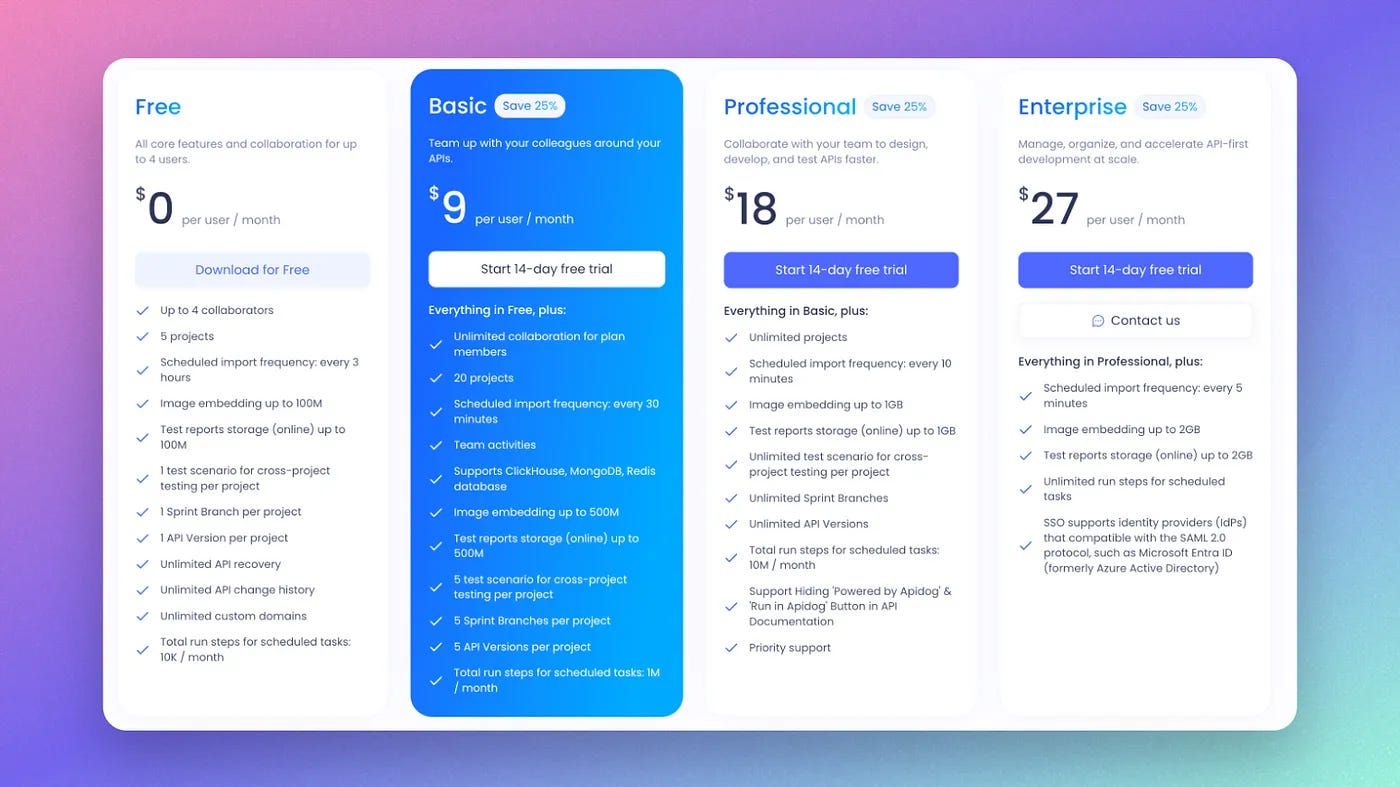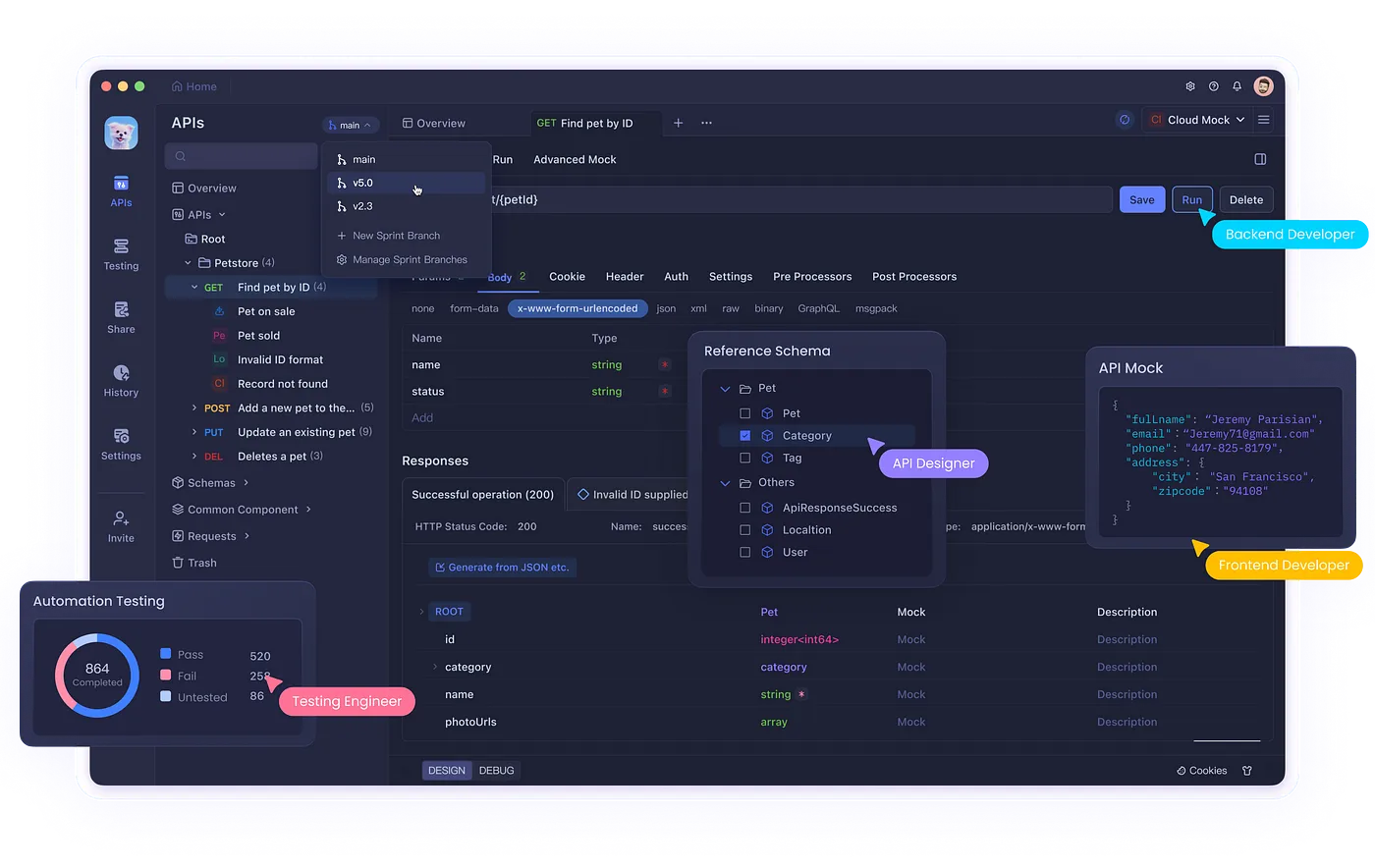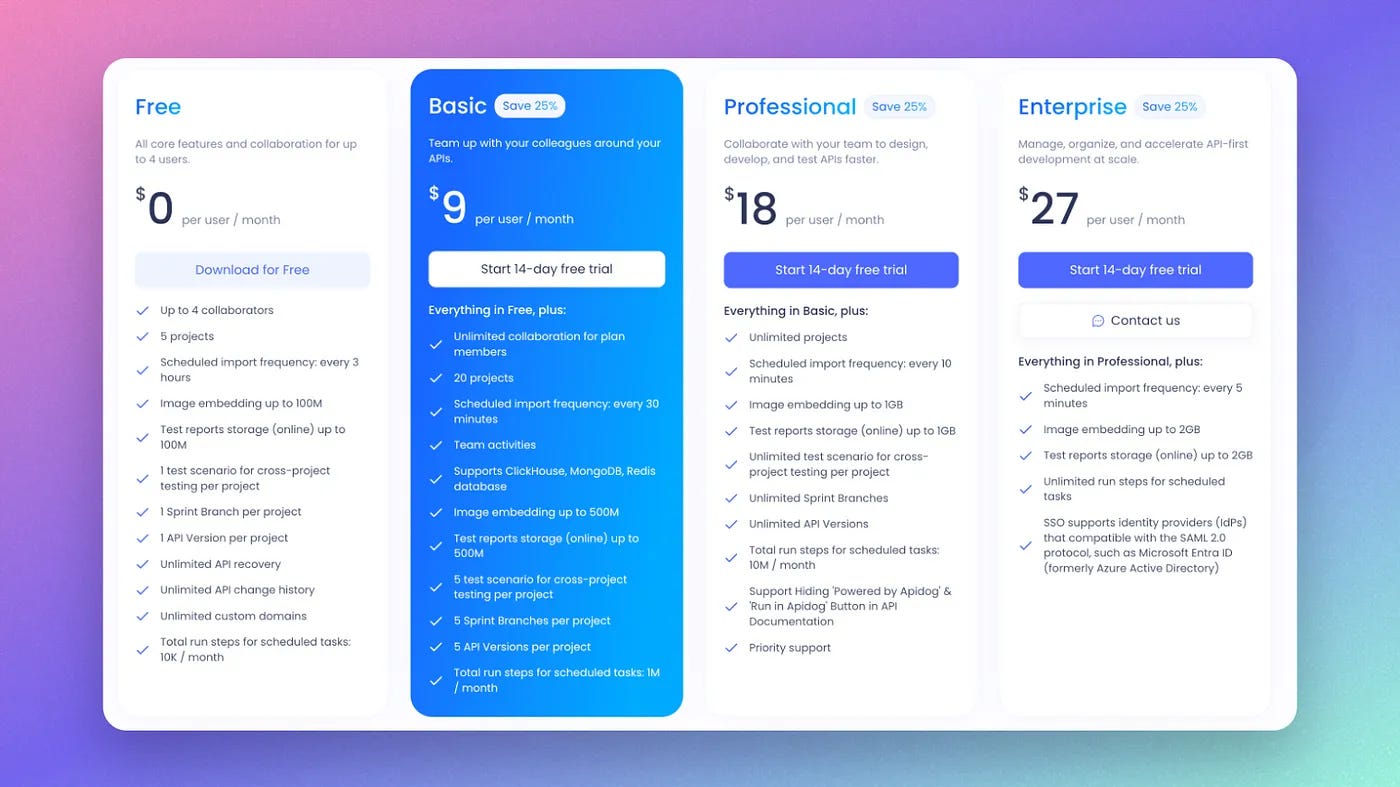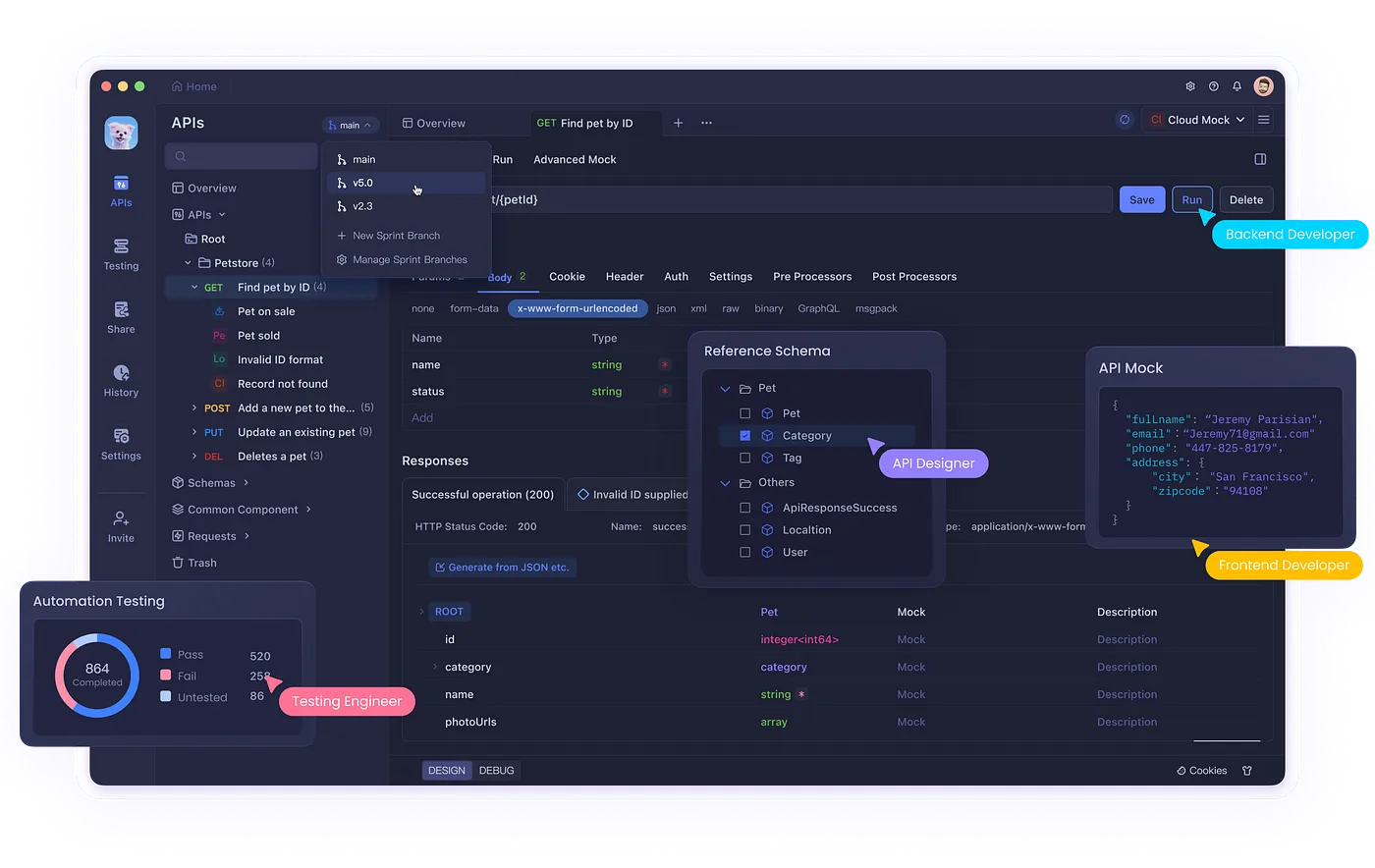How to Navigate the Agent Universe for Maximum Success
Let’s talk about something that we all face during development: API Testing with Postman for your Development Team.
Yeah, I’ve heard of it as well, Postman is getting worse year by year, but, you are working as a team and you need some collaboration tools for your development process, right? So you paid Postman Enterprise for…. $49/month.
Now I am telling you: You Don’t Have to:

That’s right, APIDog gives you all the features that comes with Postman paid version, at a fraction of the cost. Migration has been so easily that you only need to click a few buttons, and APIDog will do everything for you.
APIDog has a comprehensive, easy to use GUI that makes you spend no time to get started working (If you have migrated from Postman). It’s elegant, collaborate, easy to use, with Dark Mode too!

Want a Good Alternative to Postman? APIDog is definitely worth a shot. But if you are the Tech Lead of a Dev Team that really want to dump Postman for something Better, and Cheaper, Check out APIDog!
The Concept of Agent Universe
The term “agent universe” commonly refers to the domain in which intelligent agents operate, including their environments, interactions, and the overarching frameworks governing their behavior. An agent, in this context, can be defined as an entity capable of perceiving its environment, making decisions based on that perception, and taking actions that affect the environment. As we delve deeper into this concept, it will become apparent how agent universes manifest in various fields, from artificial intelligence (AI) and robotics to economics and sociology.
Understanding Intelligent Agents
Intelligent agents can be classified into several categories based on their characteristics:
- Reactive Agents: These are basic agents responding to stimuli in their environment without any internal representation. For example, a thermostat that turns the heating on or off based on temperature readings.
- Deliberative Agents: Deliberative agents possess an internal model of the world and employ complex reasoning processes to make decisions. A classic example is a chess-playing program that analyzes possible moves and their outcomes before deciding on its next move.
- Learning Agents: These agents improve their performance over time through experience. For instance, recommendation systems on platforms like Amazon or Netflix, which adapt their suggestions based on user behavior.
The diversity of these agents highlights the complexity embedded within agent universes. Each agent operates within certain constraints and possesses different capabilities that influence its interactions and decision-making processes within the universe.
The Environment of Agent Universes
Types of Environments
To fully grasp the concept of agent universes, one must consider the environment where these agents operate. Environments can be described as either:
- Fully Observable: An agent has complete access to all relevant information in its environment. For instance, a robot cleaning a room has complete visual data regarding its surroundings.
- Partially Observable: The agent only has access to a portion of the information related to the environment, which necessitates the need for inference and reasoning. A self-driving car, for example, relies on sensors that provide limited information regarding the vehicle’s surroundings.
- Static vs Dynamic: Static environments remain unchanged while the agent is deliberating, whereas dynamic environments can change, possibly due to actions taken by other agents. For instance, a stock trading algorithm operates in a dynamic environment influenced by other market participants.
Representation of Environments
In the context of agent universes, environments are often modeled in formal frameworks. For instance, Markov Decision Processes (MDP) are widely used to represent and analyze environments where agents make sequential decisions. Such formal representations help in designing agents that optimize their actions based on certain criteria, such as maximizing expected reward.
Interaction and Cooperation among Agents
Multi-Agent Systems
Within an agent universe, multiple agents may coexist and interact. These interactions can be competitive or cooperative.
- Competitive Interactions: In environments like gaming or economic markets, agents may vie against one another to achieve their respective goals. For instance, in a multiplayer online game, players (agents) may compete for resources or to complete missions.
- Cooperative Interactions: In many real-world applications, agents must work together to achieve a common goal. An eloquent example is robotic swarm systems, where multiple autonomous drones coordinate their actions for tasks like search and rescue operations or agricultural monitoring.
Communication
Agents often need to communicate to negotiate or coordinate their actions effectively. Protocols like the Agile Framework (AF) or Contract Net Protocol (CNP) facilitate such interactions. For example, a negotiating agent in a marketplace might employ these protocols to auction or bid for resources collaboratively with other agents.
Architectures of Intelligent Agents
Agent architectures are crucial as they define how an agent perceives its environment and decides on actions. There are several well-established architectures in agent design:
Reactive Architectures
Reactive architectures involve straightforward decision-making processes based solely on input from the environment. For example, subsumption architecture entails layers of controllers that deal with different levels of processing, responding to stimuli without any internal model. The emphasis is on immediate response, typical in robotic vacuum cleaners.
Deliberative Architectures
Contrarily, deliberative architectures allow for more complex reasoning processes, incorporating internal models and planning. A prominent example is the use of state-space planning in autonomous vehicles, where rigorous calculations of potential future states inform the vehicle’s operational decisions.
Hybrid Architectures
Hybrid architectures are increasingly popular, combining the strengths of both reactive and deliberative approaches. An example can be found in advanced AI systems that leverage neural networks for real-time perception while applying planning algorithms for longer-term decision-making, such as in robotics for surgery or advanced manufacturing.
Evolutionary Agent Universes
Agent-Based Modeling (ABM)
In the context of complex systems, agent-based modeling (ABM) allows for the simulation of interactions within agent universes. By defining agents that follow certain rules and responding to environmental changes, researchers can explore the emergent behaviors of systems, making it valuable for economics, sociology, and ecology.
For instance, modeling market dynamics by simulating consumer and producer agents can reveal insights into how pricing strategies evolve over time. ABMs allow for examining scenarios that would be difficult or impossible to test in the real world.
Reinforcement Learning and Adaptation
Reinforcement learning provides a framework in which agents develop their capabilities over time through trial and error. Agents learn to optimize their actions to maximize rewards by navigating through their universe’s intricacies. This methodology is widely used in fields ranging from robotics to game playing, such as AlphaGo’s unprecedented success in mastering the game of Go.
Challenges in Agent Universes
Despite significant advancements in the development of intelligent agents, several challenges persist within agent universes:
Uncertainty
Uncertainty manifests in multiple dimensions, including partial observability of the environment and the unpredictability of other agents’ decisions. Developing agents robust against such uncertainty remains a critical area of research.
Scalability
As the number of agents increases, maintaining efficiency in interactions and finding optimal solutions becomes increasingly complex. Ensuring that intelligent agents scale effectively is crucial for complex applications, particularly in traffic management or resource allocation.
Ethical Considerations
As intelligent agents become more integrated into society, ethical considerations arise. Issues related to agency, responsibility, bias, and decision-making transparency introduce new challenges for researchers and practitioners to explore. For instance, self-driving cars must navigate ethical dilemmas regarding accident scenarios, raising questions about programming moral decision-making into intelligent agents.
Security Concerns
With the proliferation of intelligent agents and interconnected systems comes the risk of vulnerabilities. Ensuring that agent universes are resistant to malicious attacks and security breaches is a pressing concern in both research and practical applications.
This comprehensive exploration of the agent universe illustrates the multifaceted nature of intelligent agents, their environments, interactions, and the underlying architectures driving their behavior. The ongoing development and application of intelligent agents across various domains are poised to revolutionize numerous industries, presenting substantial opportunities and challenges going forward.
Let’s talk about something that we all face during development: API Testing with Postman for your Development Team.
Yeah, I’ve heard of it as well, Postman is getting worse year by year, but, you are working as a team and you need some collaboration tools for your development process, right? So you paid Postman Enterprise for…. $49/month.
Now I am telling you: You Don’t Have to:

That’s right, APIDog gives you all the features that comes with Postman paid version, at a fraction of the cost. Migration has been so easily that you only need to click a few buttons, and APIDog will do everything for you.
APIDog has a comprehensive, easy to use GUI that makes you spend no time to get started working (If you have migrated from Postman). It’s elegant, collaborate, easy to use, with Dark Mode too!

Want a Good Alternative to Postman? APIDog is definitely worth a shot. But if you are the Tech Lead of a Dev Team that really want to dump Postman for something Better, and Cheaper, Check out APIDog!
